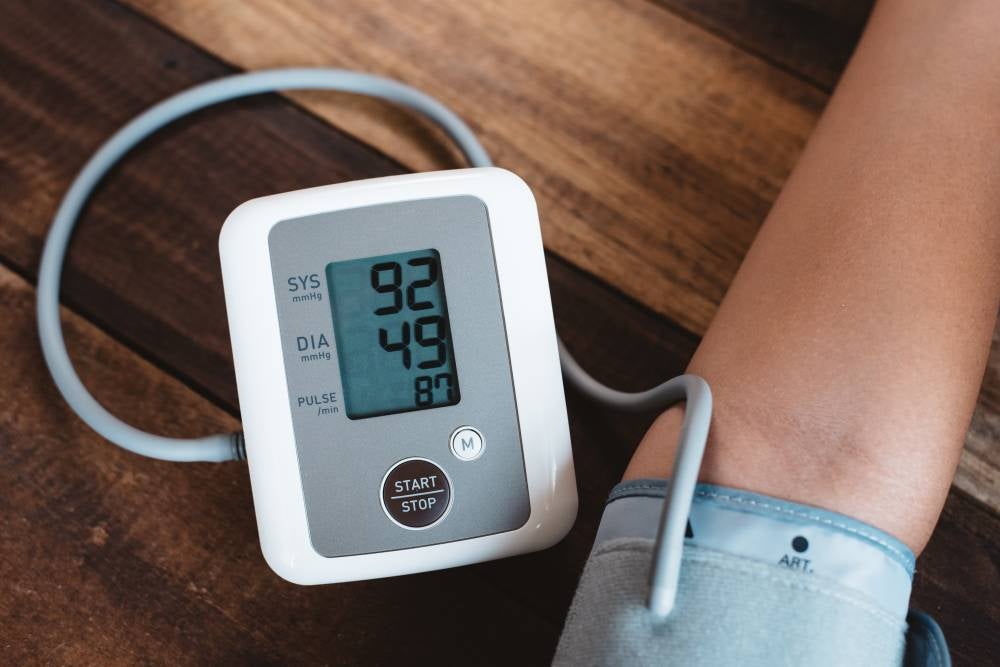Hypertension: A growing concern among young Malaysians
Eating a balanced diet rich in fruits and vegetables, reducing salt and alcohol intake, not smoking, keeping active with regular exercises and maintaining a healthy weight are key preventive measures.

KUALA LUMPUR - Once thought to primarily affect the elderly, hypertension is increasingly becoming a serious issue among younger Malaysians, particularly those under the age of 40, according to a medical expert.
Consultant General Physician (Internal Medicine) at the Wellness Centre, Sunway Medical Centre in Sunway City, Dr Jolene See Su Chen, urged Malaysians not to dismiss this concerning trend.
She explained that this shift was due to a complex interplay of genetic predisposition, lifestyle factors and dietary habits, dispelling the myth that hypertension is only a concern for the elderly.
"This misconception is dangerous. Many younger people believe they are not at risk, leading to neglect and late diagnosis," warned Dr Jolene, adding that some patients are even in their 20s.
The National Health and Morbidity Survey 2023 revealed that nearly one in three adults in Malaysia suffered from hypertension.
Alarmingly, 11.9 per cent of those with the condition are unaware of it, with the highest proportion among individuals aged 18 to 39.
Despite these serious risks, many Malaysians remain oblivious to their hypertensive status, primarily due to the absence of symptoms in the early stages.
Hypertension, defined as persistent elevation of blood pressure at or above 140/90mmHg, confirmed by measurements taken on at least two to three separate occasions, is a chronic condition where the blood force against artery walls is consistently high.
However, blood pressure readings in the range of 130-139mmHg systolic and 85-89mmHg diastolic are already considered at-risk.
People with blood pressure within this range should monitor their blood pressure closely and make lifestyle changes to help lower it.
Dr Jolene emphasised that everyone should have their blood pressure checked at least once a year as part of their health screening and be monitored during doctor’s visits for other health concerns.
"Those with a family history of hypertension or heart disease should monitor their blood pressure regularly at home. Early detection is key to managing the condition effectively," she added.
She said hypertension symptoms may include headaches, dizziness, shortness of breath, chest pain and nosebleeds and if left untreated, it can lead to severe and potentially life-threatening complications, including heart attack, heart failure, irregular heart rhythm, stroke, kidney failure and vision loss.
Dr Jolene said people can learn more about Dietary Approaches to Stop Hypertension (DASH), which is designed to help prevent or treat hypertension and may also help lower LDL cholesterol linked to heart disease.
The DASH diet focuses on consuming more vegetables, fruits, whole grains and lean proteins from lean meat, poultry or fish. It is also important to select foods that are low in saturated and trans fat, commonly found in processed food.
"Eating a balanced diet rich in fruits and vegetables, reducing salt and alcohol intake, not smoking, keeping active with regular exercises and maintaining a healthy weight are key preventive measures," she said.
Dr Jolene also emphasised the importance of adhering to prescribed treatments for hypertension, advising newly diagnosed patients to take their condition seriously, make necessary lifestyle changes and follow their doctor’s advice without adjusting medication dosages on their own.
She also reminded that untreated hypertension could severely damage blood vessels supplying the kidneys, leading to kidney failure and damaging other vital organs. - BERNAMA











